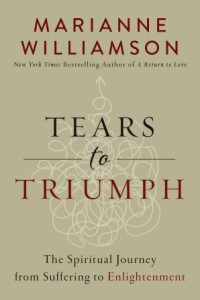Tears to Triumph
June 8, 2016“Sometimes it’s when we feel that all hope is lost that a better life begins to emerge.”
‘Um’ and ‘Like’ and Being Heard
Seth Godin:
You can fix your “um” and you probably should.
Each of us now owns a media channel and a brand, and sooner or later, as your work gains traction, we’ll hear your voice. Either in a job interview or on a podcast or in a video.
For a million years, people have been judging each other based on voice. Not just on what we say, but on how we say it.
I heard a Pulitzer-prize winning author interviewed on a local radio show. The tension of the interview caused an “um” eruption—your words and your approach sell your ideas, and at least on this interview, nothing much got sold.
Or consider the recent college grad who uses thirty or forty “likes” a minute. Hard to see through to the real you when it’s so hard to hear you.
Alas, you can’t remove this verbal tic merely by willing it away.
Here’s what you can do: Persuade yourself that the person you’re talking to will give you the floor, that he won’t jump in the moment you hesitate. You actually don’t have to keep making sounds in order to keep your turn as the speaker. The fastest speaker is not the speaker who is heard best or even most.
Next step: First on your own, eventually practicing with friends, replace the “um” with nothing. With silence.
Talk as slowly as you need to. Every time you want to insert a podium-holding stall-for-time word, say nothing instead. Merely pause.
You can do this into a tape recorder, you can try it in a meeting. It works.
You’re not teaching yourself to get rid of “um.” You’re replacing the um with silence. You’re going slow enough that this isn’t an issue.
Then you can slowly speed up.
The best part: Our default assumption is that people who choose their words carefully are quite smart. Like you.
Science of Mind contributor, Dr. James Rouse
What if your life could be like your favorite movie, with you starring as its producer, director and hero? Courageous living and epic giving can flourish beyond Hollywood, according to Dr. James Rouse, and they may provide the key to a long, happy life. Rouse has studied the inhabitants of Okinawa, Japan, which boasts the largest population of centenarians in the world. These remarkable people thrive on “ikigai” — healthy passion and plenty of reasons to get up in the morning.
Rouse argues that each of us already creates our own screenplay, either by design or by default. Why not build it by design? Rouse’s infectious enthusiasm will make you a believer in this video: “The Hero’s Journey: Creating a Life You Love.” Learn how to forge the neural networks for your ultimate life, making it a movie you would want to watch over and over again!

